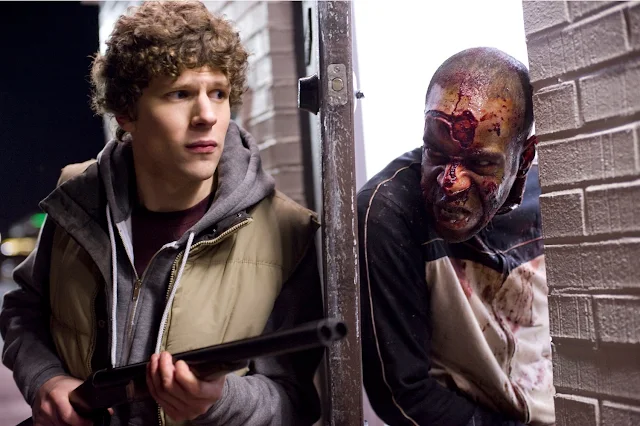 |
| Woody Harrelson and Juliette Lewis in Natural Born Killers |
Cast: Woody Harrelson, Juliette Lewis, Robert Downey Jr., Tom Sizemore, Tommy Lee Jones, Rodney Dangerfield, Edie McClurg, Russell Means, Balthazar Getty, Stephen Wright, Sean Stone, Jeremiah Bitsui, Pruitt Taylor Vince, Joe Grifasi, Everett Quinton. Screenplay: Quentin Tarantino, David Veloiz, Richard Rutowski, Oliver Stone. Cinematography: Robert Richardson. Production design: Victor Kempster. Film editing: Brian Berdan, Hank Corwin. Music: Brent Lewis.
Oliver Stone's sledgehammer satire Natural Born Killers began with a screenplay by Quentin Tarantino in which the central character was the filmmaker Wayne Gale, played in Stone's version by Robert Downey Jr. In the rewrite, Stone and co-writers David Veloz and Richard Rutowski shifted the focus to the killers, Mickey (Woody Harrelson) and Mallory (Juliette Lewis). Tarantino has since regretted the loss of control over his story, and it's easy to see why. A Tarantino version might be at least as violent and bloody, but it would have had some wit to it. Mickey and Mallory might have been more like Pumpkin and Honey Bunny, the couple played by Tim Roth and Amanda Plummer in Pulp Fiction (1994) -- lethal but oddly lovable. Stone makes all of his characters loathsome -- if we have sympathy for Mickey and Mallory, it's because everyone around them is worse, from Mallory's parents, played by Rodney Dangerfield and Edie McClurg, to the gas station attendant played by Balthazar Getty, to the detective played by Tom Sizemore and the warden played by Tommy Lee Jones. Jones in particular is directed to play against his usual type, a slow-burning character like the marshal in The Fugitive (Andrew Davis, 1993), and go wildly over the top. Stone is less interested in characters or even in making a point about media exploitation than in showing off film technique, from Dutch angles to the mixing of various film stocks and switches from color to black and white. In short, Natural Born Killers is a headache-inducing mess.













